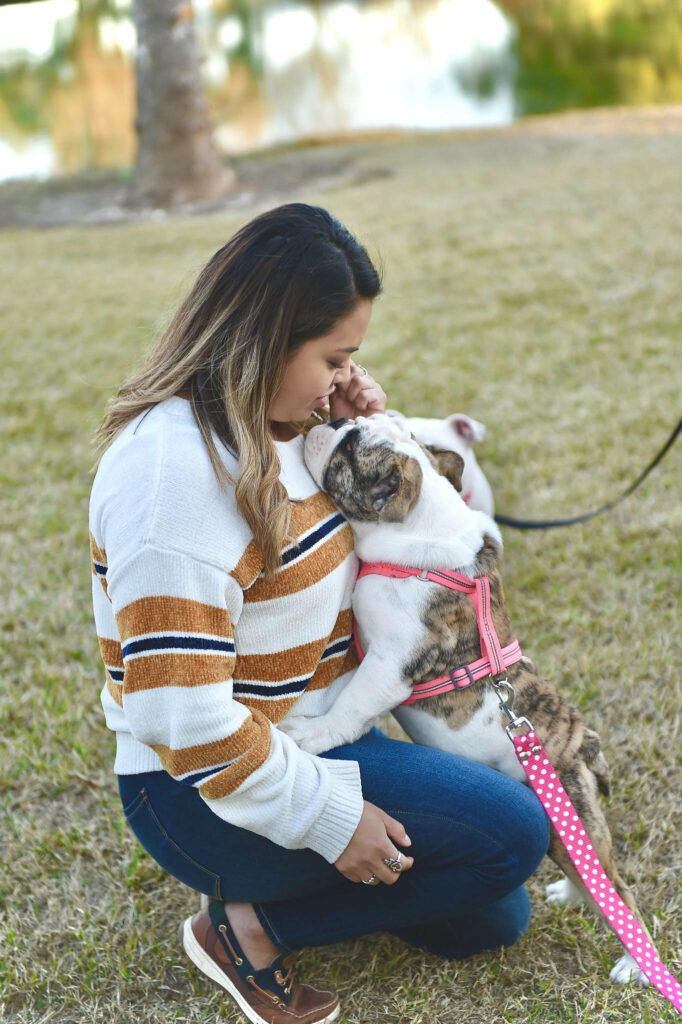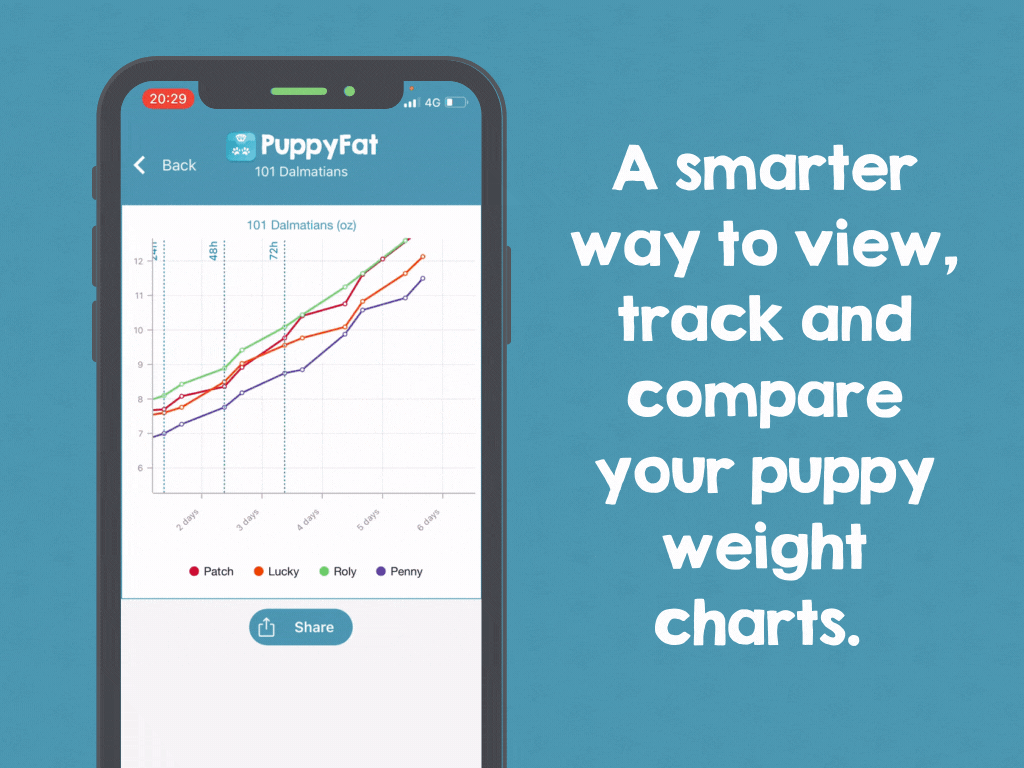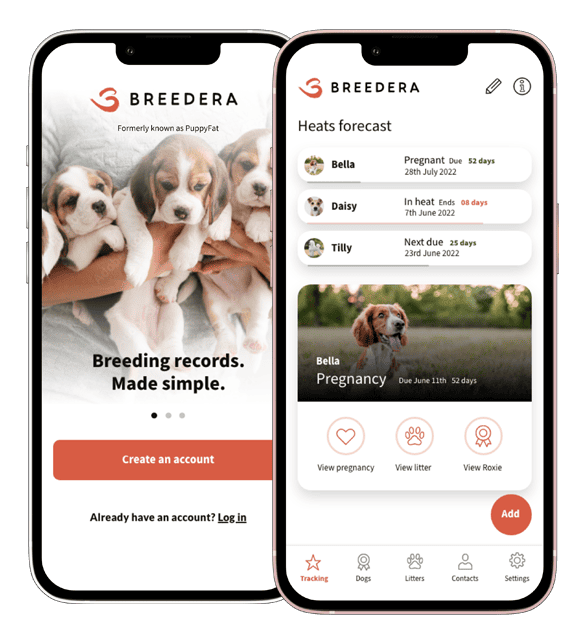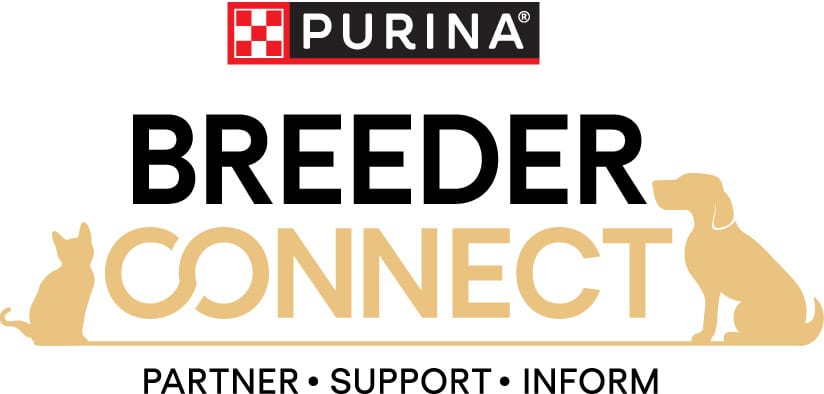In this article
In this blog, we speak with long-time PuppyFat customer Anahy Cazares, a small Texas-based family breeder who also builds and sells incubators, to learn more about ensuring neonatal puppy wellbeing within the first few weeks of their arrival.
Anahy is a passionate English Bulldog Breeder, who is on a never-ending mission to improve the health and appearance of the English Bulldog breed, meeting the breed standards and breeding ethically and exclusively healthy Bulldogs.

“I became an English Bulldog Breeder as I always loved the flat, squishy face of a Bulldog. And, after all the research prior to getting our first Bulldog as a family, I found out that so many of the ‘Bulldog Health issues’ are caused by irresponsible breeders by breeding unhealthy dogs,” Anahy tells us.
Below are some of her must-know tips on caring for neonatal puppies and keeping them healthy and happy.
Insights into neonatal puppy wellbeing.
Keep the puppies and dam in a quiet space.
“One of the main things to consider when caring for newborn puppies within the first few days is to ensure the puppies and dam are in a quiet, low traffic area,” Anahy explains.
A neonatal puppy need a peaceful and clean environment, especially during their first few weeks.
Before their arrival, prepare a space that’s large enough for your dam to comfortably stretch out without harming the pups. While the place should be out of the way of any hustle and bustle, it should still be easily accessible for both you and the mother to access freely while still keeping the pups contained and safe.
Keep your puppies warm.
As a neonatal puppy is unable to regulate their body temperature, it’s essential to make sure they’re warm enough.
“Puppies do not develop the shiver reflex until they’re around two and a half weeks old, so keeping them warm during this time is vital,” Anahy continues.
“Hypothermia is the single greatest problem for newborn puppies. I cannot stress enough how important an incubator is to provide a constant source of heat at all times. A chilled puppy cannot digest properly and will become lethargic within an hour and or two, and can even die.”
One way to do this is by using an incubator:
“We built our first incubator in the middle of the night when I had two neonatal puppies who need extra help keeping warm as they were struggling to breathe. We looked at some of the big-name brands, and neither could ship overnight; this is what led us to build one ourselves,” she tells us.
“We’ve since done a lot of research to make sure it was safe for the puppies, breeders and wasn’t going to cause any damage to the home. I’ve heard terrifying stories about homemade incubators, where people have cut corners. This is why we only use quality parts, buying directly from companies and are able to offer a 12-month warranty on all equipment.”
Weigh the puppies daily.
It’s crucial to monitor each pup’s weight by weighing and tracking measurements every day, Anahy explains:
“Weighing daily helps you to make sure each pup is gaining weight.”
By tracking weight the weight of your puppies, you can also check to see whether any pup is being underfed and perhaps needs extra attention during feeding time.
It may be time to talk to your vet if your smaller pups aren’t showing any signs of healthy growth.

Key takeaways on neonatal puppy wellbeing.
- Provide a safe, quiet and clean spot for newborn pups.
- Keep the pups warm enough during the first two weeks.
- Track the weight of your pups daily.
To find out more about Cazares Royal Lineage Bulldogs and their incubators, please visit www.cazaresbulldogs.com. You can stay up to date with Cazares Royal Lineage Bulldogs on their Facebook page.














By Courtney Farrow
Courtney supports Breedera with all our online content. Specialising in heart-led copywriting for purpose-driven brands, she is passionate about Breedera's mission to make responsible breeding practices easy and rewarding and champion more traceability and transparency in the pet industry.